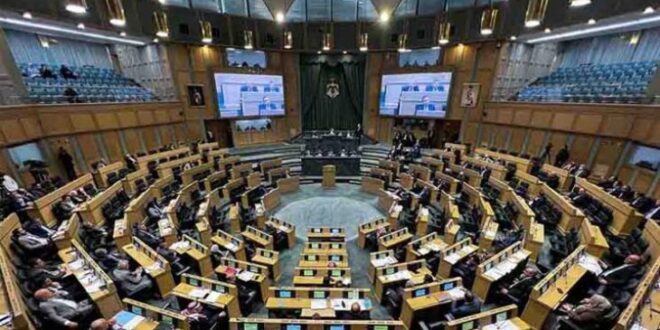Eng. Saleem Al Batayneh
In the seemingly tranquil Jordanian political landscape, beneath the surface lies a series of developments that demand our attention. As questions arise about the position and future of the Muslim Brotherhood in the country’s upcoming political scene, it becomes evident that there is much more to the story than meets the eye.
Two contrasting perspectives emerge when analyzing the situation. One view suggests the quiet resurgence of the Muslim Brotherhood, signalling their return to the political stage after the closure of their headquarters and the weakening of their political and economic influence. This perspective emphasizes the need for influential parties that can rally popular support and effectively lead the nation according to the government’s vision. In this regard, only the Muslim Brotherhood seems capable of assuming such a role.
The Muslim Brotherhood has always been a part of Jordanian politics, serving as a loyal opposition to the ruling establishment. Unlike its counterparts in other Arab countries, the group’s relationship with the state and governance institutions in Jordan has followed a unique trajectory, characterized by a certain level of wisdom from both parties involved.
While tensions and fluctuations have marked the Jordanian political system’s association with the Muslim Brotherhood, the relationship has never reached a point of complete estrangement or confrontation. The group continues to play a crucial role in managing economic, social, and political crises that pose a threat to the stability of the nation. Since its establishment in 1945, the Muslim Brotherhood has solidified its position as a significant political actor within the Jordanian scene, even in the face of opposition from rival ideologies that harbour negative sentiments towards the state and its political system.
What sets the Muslim Brotherhood’s experience in Jordan apart is its direct engagement with the ruling establishment. During the tumultuous periods of the 1950s, the group sought assistance at critical junctures in Jordan’s history and emerged as a stabilizing force, even during times of disagreement with the state. Their long history of interaction with Jordanian politicians demonstrates their commitment to the preservation of stability and security.
Despite occasional strains and challenges, the overall relationship between the Muslim Brotherhood and the ruling establishment has remained relatively stable since the group’s inception in the 1940s. Their commitment to countering threats to the state and the political system has fostered ongoing communication and occasional cooperation. Amidst the ebbs and flows of this relationship, periods of ambiguity have emerged, with the parties finding common ground on political and strategic levels. Most notably, the rejection of the notion of an alternative homeland and the preservation of Hashemite guardianship over religious sites have reinforced the notion that the Muslim Brotherhood’s involvement in Jordanian politics remains an open and ongoing discourse.
As Jordan’s political scene continues to evolve, it is imperative to recognize the historical significance and unique dynamics of the Muslim Brotherhood’s role within the nation. Engaging in open dialogue and understanding the complexities of this relationship will be essential in shaping Jordan’s future political landscape and ensuring the nation’s stability and prosperity.
The Evolving Dynamics of the Muslim Brotherhood in Jordan: A Delicate Balancing Act
Efforts to uproot the Muslim Brotherhood in Jordan have remained virtually nonexistent, even after the waves of the Arab Spring. Simultaneously, the group demonstrates a keen awareness of the sensitivity and complexities of the Jordanian equation, operating within a framework that avoids burdening the state or the regime. A recent report by the San Jose Daily News suggested that Jordan is seeking to restore some level of relationship with both the Muslim Brotherhood and Hamas, reportedly with the direct approval of the king.
In practice, Jordan has accommodated the Muslim Brotherhood’s extensive experience by granting them freedom, allowing significant partisan and parliamentary participation, and actively engaging with the Palestinian cause and the sanctity of Jerusalem. However, just a month ago, the Israeli newspaper Maariv published a detailed draft law proposing the spatial division of the Al-Aqsa Mosque between Muslims and Jews. The plan envisions Muslims retaining the southern Al-Qibli prayer hall and its sacred annexes, while Jews would have access to the central and northern areas, including the Dome of the Rock, which holds significance for them as the alleged site of the Temple.
These developments are not mere speculation, but rather plausible scenarios that can be anticipated, given a historical understanding and present circumstances. There are voices within Jordan’s political decision-making circles that argue for establishing a clear and stable relationship between the country and the Muslim Brotherhood and Hamas. Consequently, the days ahead may witness the return of the Muslim Brotherhood to the political scene and restoration of ties with Hamas, seen as necessary from an official perspective.
In light of these potential shifts, What will the future relationship between the Muslim Brotherhood and the state entail? Are new equations and possibilities emerging? What role will they play in preserving and strengthening Jordan’s stability?
Personally, I maintain my previous opinion, holding doubts about the ability of any political party, including religious ones, to significantly contribute to the progress of political, economic, and social life in Jordan. This sentiment echoes the views expressed by renowned American journalist Thomas Friedman in his article, “Can Elephants Fly?”
It is important to note that parts of this article draw from a study published by the San Jose Daily News four months ago, examining the state of the Muslim Brotherhood in the Middle East. Additionally, another portion references recent coverage by the Israeli news website, The Times of Israel.
As a former Jordanian deputy, I observe the evolving dynamics with a cautious eye, recognizing the delicate balancing act that lies ahead as the Muslim Brotherhood’s role potentially evolves within the complex fabric of Jordanian politics.
Al Batayneh is a former member of the Jordanian Parliament
 Geostrategic Media Political Commentary, Analysis, Security, Defense
Geostrategic Media Political Commentary, Analysis, Security, Defense





